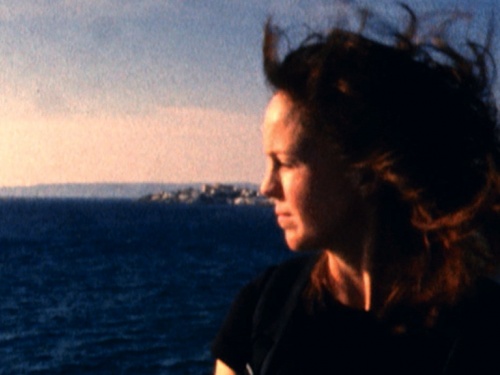2014 Berlinale Programme Overview
William Guy reports back from the 64th Berlin International Film Festival (6 - 16 February 2014) and picks out the themes and highlights which emerged.
This year’s Berlinale set a new record in ticket sales, proving its audience to be ever-growing. With over 400 films in 10 sections, Belin has the world’s largest public film festival. As such, it tells a lot about the current state of international cinema – not only its films but also its audience. With this in mind, Ken Loach’s Honorary Golden Bear for his confident social observations perhaps seems an attempt to satisfy those critics who condemned the films of the 2014 Berlinale programme for their reluctance to make any clear social or political comment. While there are obvious exceptions to this – such as Zhao Dayong’s Shadow Days with its startling depiction of China’s one-child policy – it is in fact the films that brought such complaints which proved most interesting at this year’s festival. Rejection of polemic was not a subtraction but an exchange. In return the programme offered intelligence; an abundance of on-screen contemplation which quickly spread to its audience.
The Berlinale programme followed entire timelines: from the opulence of Wes Anderson’s Grand Budapest Hotel at the onset of war, through to the Monuments Men who attempted to preserve such pre-war grandeur, arriving finally at the German Concentration Camps Factual Survey and its horrific record of the resulting desolation. But further still, to reach Radical Evil from Stefan Ruzowitzky, where grief develops into a desire to understand. Ruzowitzky engages a panel of experts to consider the Nazi death squads as comprised of ordinary men, exploring humanity’s impulses of conformity and obedience. The film adopts introspection to examine issues which permeate the common man as universal and timeless ideas. We are asked whether we would have acted differently. There may be an absence of direct judgment, but such a verdict would entirely oppose the film’s purpose. Instead, its approach prompts inescapable self-examination.
Personal contemplation is a theme that carries through into the Berlinale’s fiction offerings. Josephine Decker’s debut narrative feature Butter on the Latch even takes introspection for both its subject and form. The film overlooks narrative comprehension to instead explore the experience of a place through the mind of its protagonist. This distorted perception provides a dark and twisted vision induced by an environment entwined with private anxiety. Decker certainly made a powerful entrance into the international arena, with both of her debut feature films securing a place within the Berlinale’s Forum section. Her filmmaking shows playful artistic freedom that is nothing but original. Though snubbed at the awards for Best First Feature by Alonso Ruizpalacios’s Güeros, Decker’s career promises a host of unimaginable delights.
Güeros was in fact one of only a handful of award winners not to come from Asia, where the east’s typically strong showing arranged a successful bear hunt at this year’s festival. Yi'nan Diao’s Black Coal, Thin Ice took both Best Film and Best Actor, Haru Kuroki earned Best Actress for The Little House, and Blind Massage’s cinematography fully deserved its Silver Bear for Outstanding Artistic Contribution. Indeed, it is the Asian filmmaking that conclusively redeemed the festival programme beyond any pessimistic criticism. The variation they provided is fully reflected in the awards that concluded the festival. So, if this festival is to tell us anything of international cinema, it is surely that the east is moving west with confidence and is greeted with pleasure. Having recently concluded the East Side Stories festival of Japanese cinema depicting the lives of youth, the ICA is currently hosting the comprehensive Pan-Asia Film Festival. Audiences now have the chance to travel through the diverse range of cinemas from the region, experiencing all its moments of disparity and harmony. With such considerable difference among the various Asian cinemas, we certainly have no shortage of opportunity for discovery.
William Guy
Feb 2014
William Guy is editor of ODDmotion and writer at AVENIR Magazine and NISI MASA
This article is posted in: Articles, Film
Tagged with: Berlinale, William Guy, Film Festival





